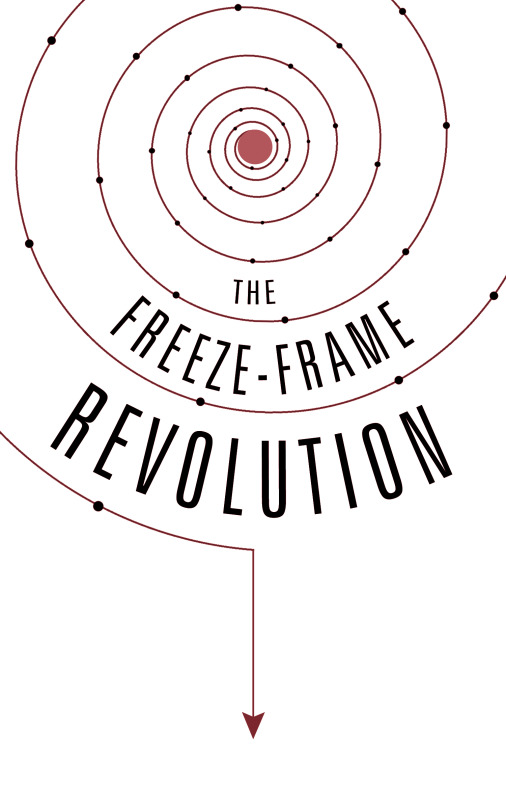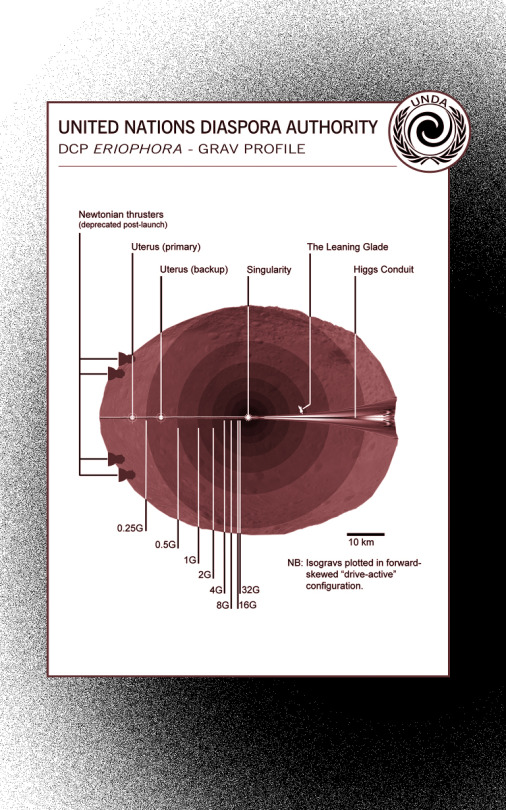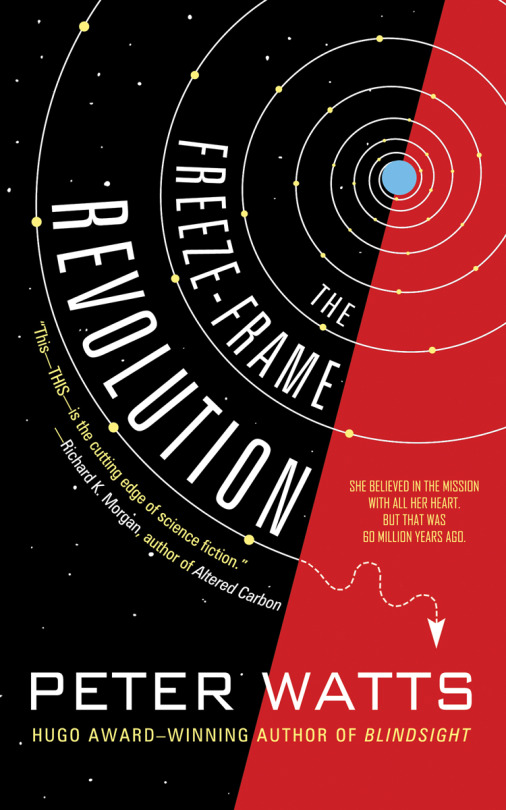Incredibly smart and imaginative, Peter Watts’ THE FREEZE-FRAME REVOLUTION delivers a brain-twisting sense of wonder
More commentary on Peter Watts’ gripping, mind-expanding THE FREEZE-FRAME REVOLUTION.

Christopher East on his eponymous site raves about the novella.
Far-future science fiction is a tough sell for me. Done poorly, it can feel phony; done well, it can be impenetrably alien. Peter Watts’ new novella THE FREEZE-FRAME REVOLUTION (2018) straddles the line perfectly, a dazzling blend of brain-twisting sense of wonder that never loses sight of its narrative accessibility.
<snip>
THE FREEZE-FRAME REVOLUTION is an occasionally challenging read, but also a gripping, mind-expanding one. Somehow it manages to attach a brisk plot to a revolution that takes place over the course of millennia. Watts’ upbeat, neologism-heavy style manages to convey the impression of an unknowably weird future, while also serving as a vivid window onto it. The blend of big ideas, well rendered characters, eye-popping setting, and engrossing plot makes for a very satisfying read. I’m having a hard time figuring out how Watts’ work has flown under my radar until now.
AVALINAH’S BOOKS enjoys their introduction to Watts.
I was incredibly excited when I was approved for a review copy of THE FREEZE-FRAME REVOLUTION – and rightly so! It turned out to be a remarkably refreshing scifi that is both new, yet retains the best parts of hard classical scifi. I absolutely loved it and now can’t wait to read more by Peter Watts!

When I finished reading it, I was actually surprised that this was a novella. I was convinced it was a full-length book! I think, considering the length, it’s somewhere between the middle, but the fact remains – it’s a shorter format, and yet, the book was completely fully fleshed out and didn’t lack anything, in my opinion. I’ve read novellas where the format itself took away from the story – but not in THE FREEZE-FRAME REVOLUTION. Both incredibly smart, imaginative and well written, in my eyes, it’s a full-fledged novel in its own right.
GRAB IT! NOW! I just can’t begin to tell you how much I loved it. And I know for a fact I will be reading it again, and perhaps soon (mostly because reading the ending when you’re borderline falling asleep does not work out in the best interests of you actually understanding what happened! LOL) I already have another book by Peter Watts, and I can’t wait to read it.

Paul Semel interviews Watts.
It sounds like THE FREEZE-FRAME REVOLUTION is a hard sci-fi story. Is it, or is there another science fiction genre, or combination of them, that fits this novel better?
I don’t know about this term “hard sci-fi.” I think it’s a sliding and subjective scale, more a function of the reader’s background than anything intrinsic to a given story. Larry Niven is considered a “hard sci-fi” author, and his stories involve genes that code for luck. I’ve written novels that would be considered diamond-hard to anyone equipped with anything up to, say, an M.Sc., but a doctorate in microbiology would regard as pure fantasy my explanation for how Behemoth gets across the host-cell membrane without provoking lysis. So some might regardThe Freeze-Frame Revolution as hard sci-fi because I consulted with a laser scientist about black-hole propulsion systems, or because I took the time to work out Excel spreadsheets on time dilation effects or how fast you can go before hydrogen blue-shift melts your ship to slag; turns out its somewhere between 20-50% lightspeed.
On the other hand, the whole premise revolves around faster-than-light travel using “non-relativistic black holes,” which I’m pretty sure breaks physics as we know it. It might be hard sci-fi by some lights, but it’s probably the least hard sci-fi novel I’ve written. With the exception of Crysis: Legion, which was not my plot to begin with.
How about “hard space / game opera”?
I’ll allow it. Now, in THE FREEZE-FRAME REVOLUTION, Sunday Ahzmundin is only woken up one day in a million. Is there a reason you decided it was one in a million as opposed to one in a hundred or a thousand or a billion?
Yup. THE FREEZE-FRAME REVOLUTION is just one chapter in a vast narrative arc extending over billions of years. Sunday has to be alive at the end of it, so it was a question of assuming a reasonable human lifespan and working back to see how often she can come out of stasis and still be alive five billion years down the road.
Roy Christopher’s annual summer book reading list compiled from diverse hands includes Paul Levinson’s recommendation of THE FREEZE-FRAME REVOLUTION.
Peter Watts’ THE FREEZE-FRAME REVOLUTION (Tachyon) was [is due to be] officially published on June 12, but I was fortunate to get an advance copy. Watts is a gifted science fiction writer, with a knack for combining disparate threads of science rooted in hard-as-nails science, and he does this par excellence in his latest novel. This time it’s far-future humans far away from Earth, in a tense web woven of AI, biology, cyberpunk in the flesh and robots with music. Not only that, the novel is just 192 pages

KINDIG praises the book.
****
The premise of THE FREEZE-FRAME REVOLUTION is one that greatly intrigued me to pick it up, kept me interested whilst reading and stayed with me long after I had finished it. The story explores humanity thriving in an environment where a mission they fully believed in may now be obsolete and where they have to trust an AI built by people long since dead whose objectives aren’t quite clear. It’s not a light read or a happy one but it’s very interesting and gripping.
<snip>
Overall THE FREEZE-FRAME REVOLUTION is a must-read for sci-fi lovers; it’s short and sharp and will stay with you long after you’ve put it down.
For more info on THE FREEZE-FRAME REVOLUTION, visit the Tachyon page.
Cover and design by Elizabeth Story
